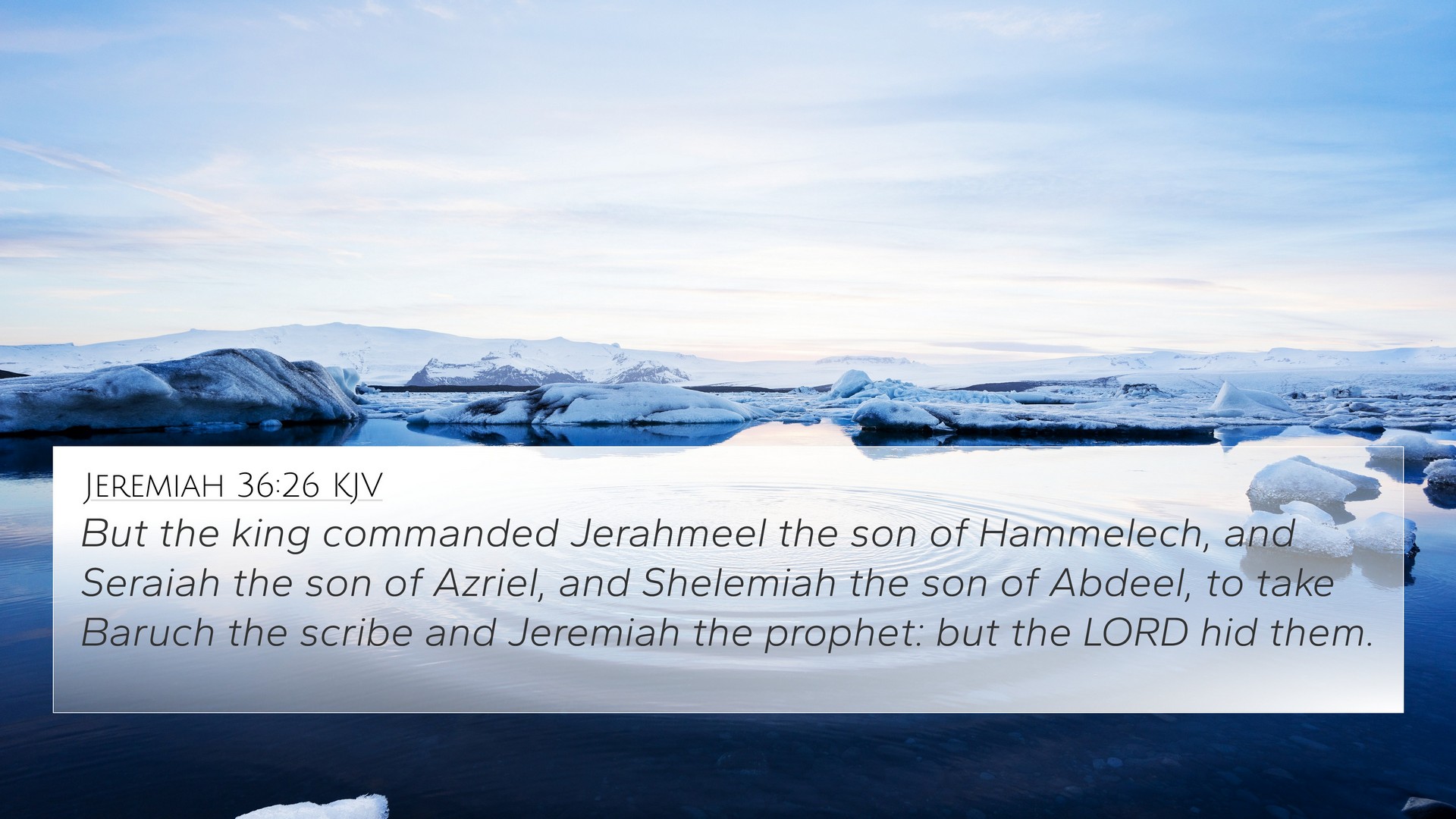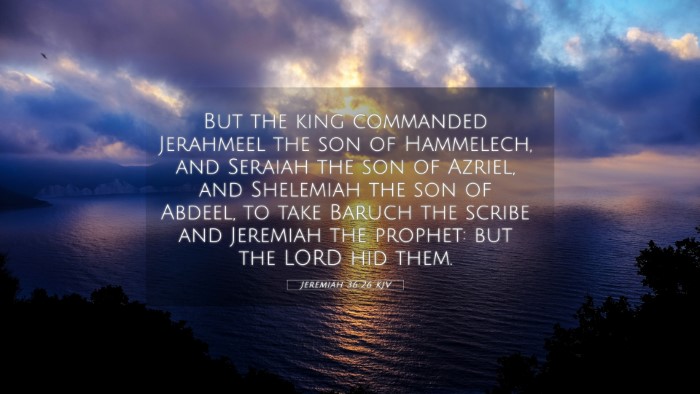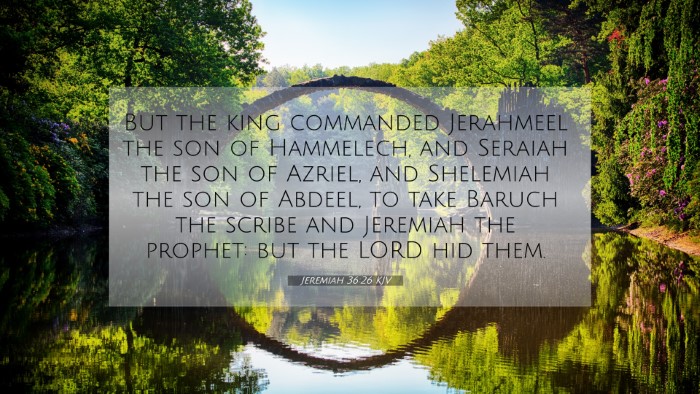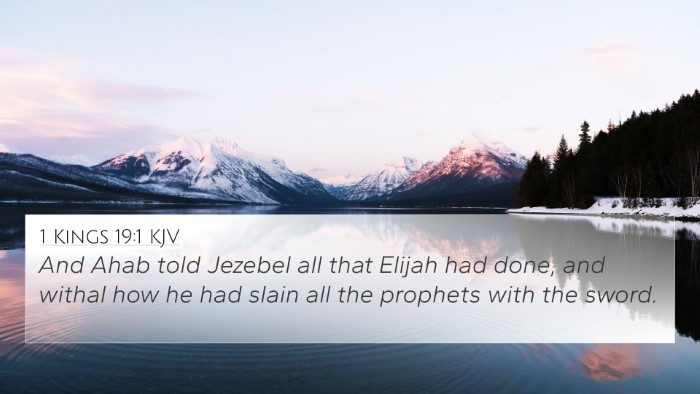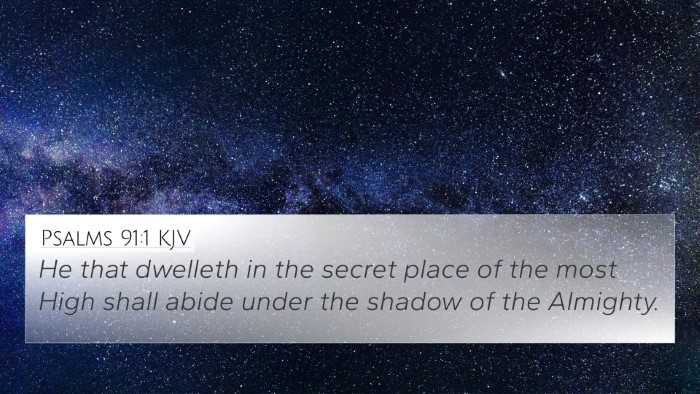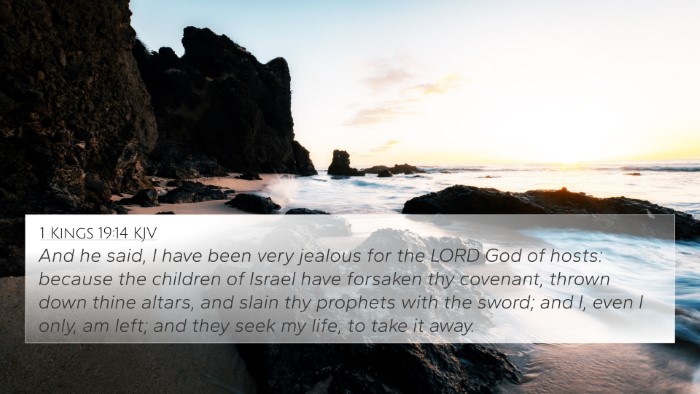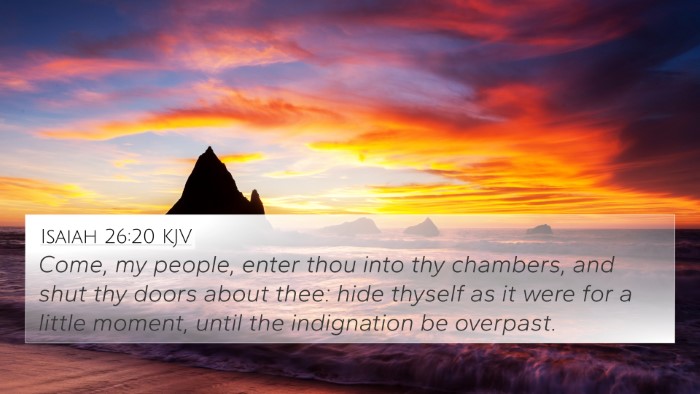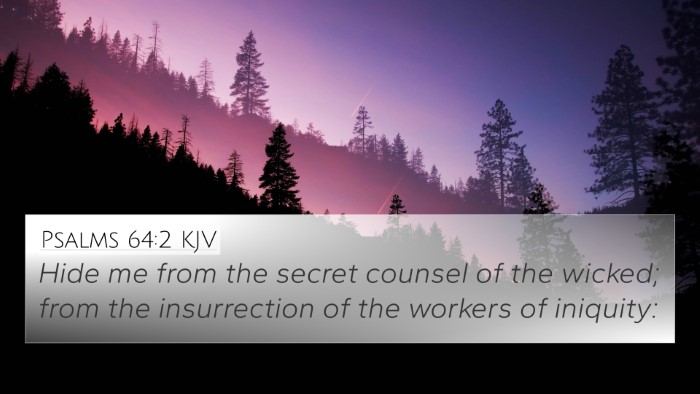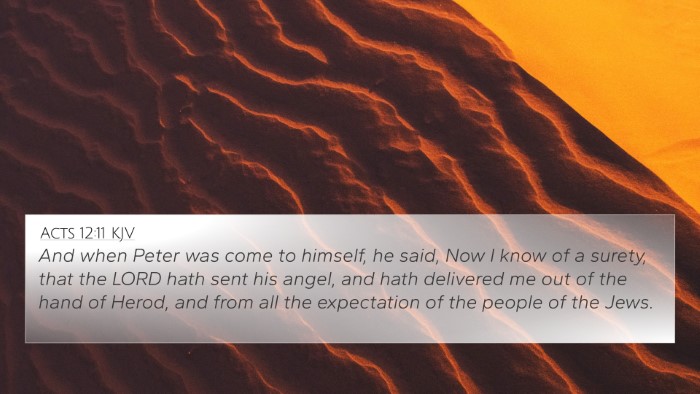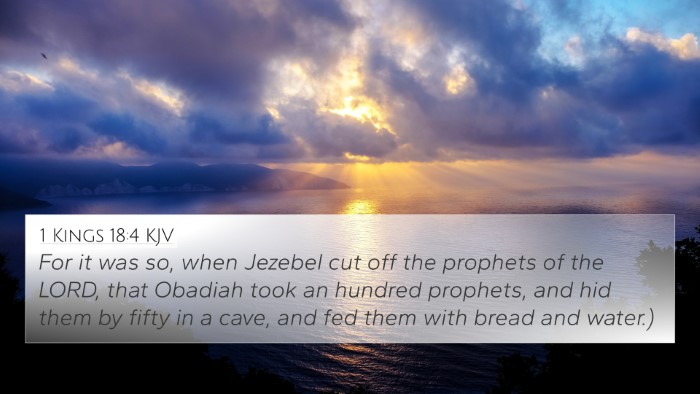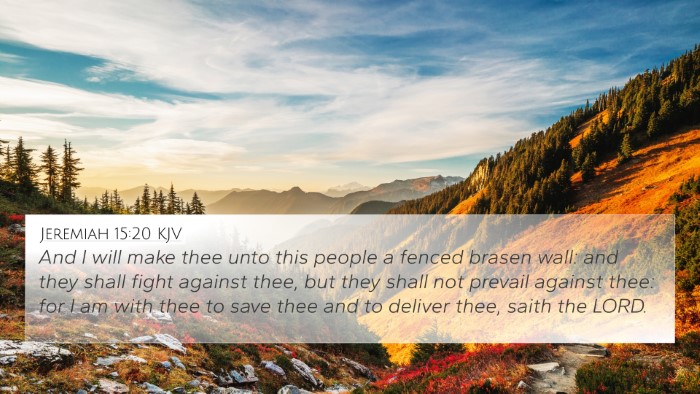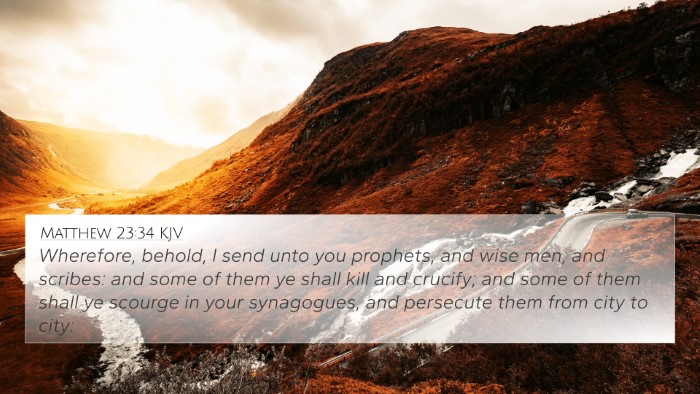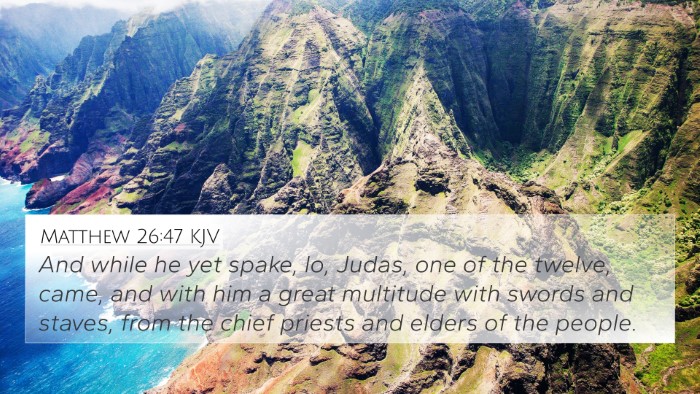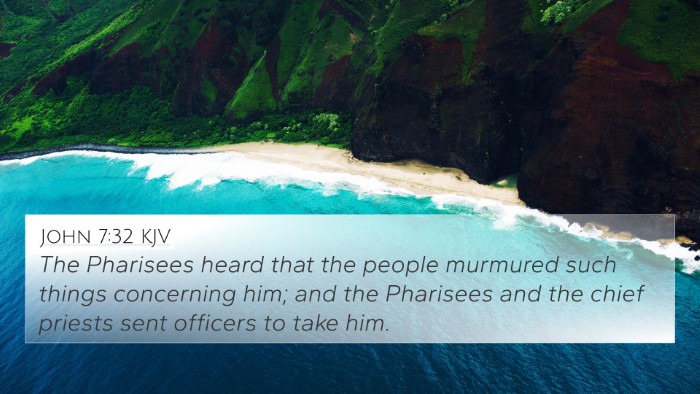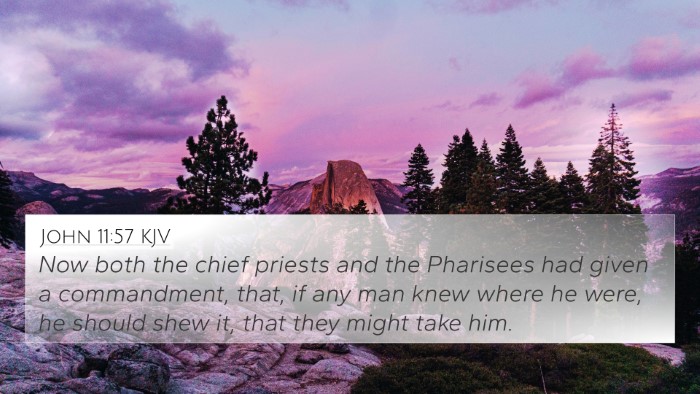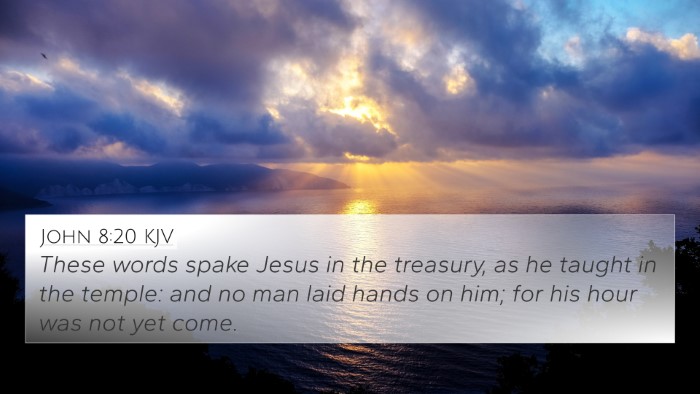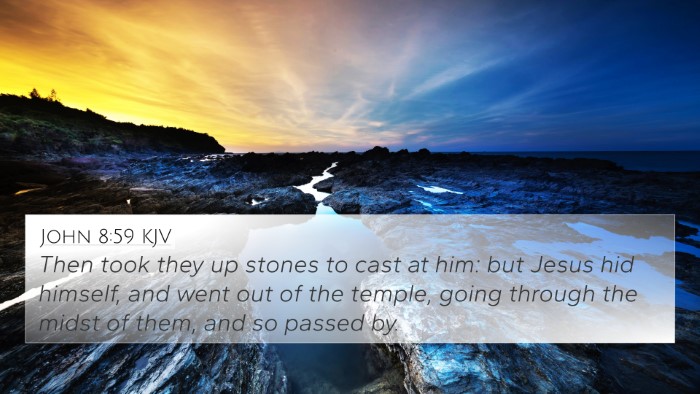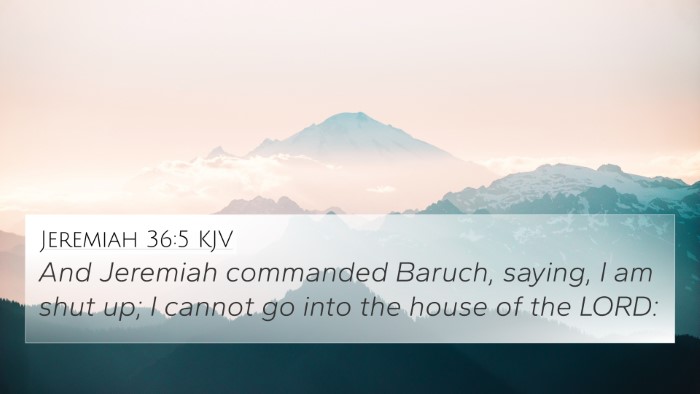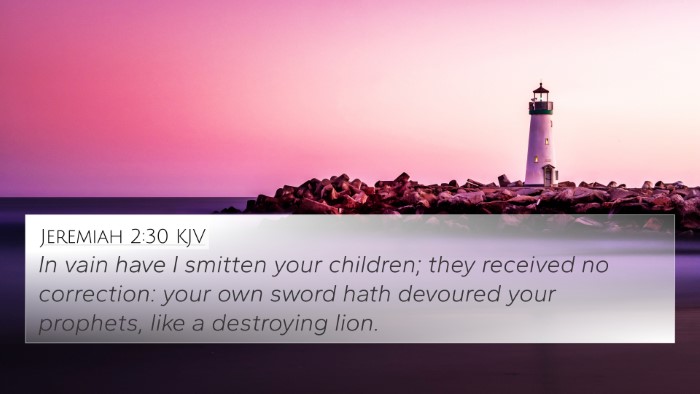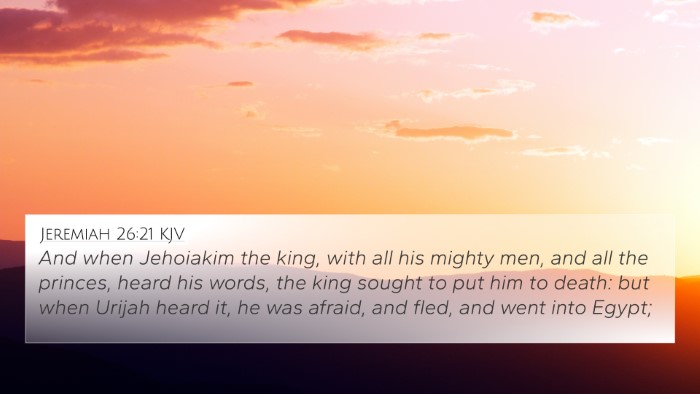Understanding Jeremiah 36:26
Jeremiah 36:26 states: "But the king commanded Jerahmeel the son of Hammelech, and Seraiah the son of Azriel, and Shelemiah the son of Abdiel, to take Baruch the scribe and Jeremiah the prophet; but the LORD hid them." This verse is a significant event in the chronology of Jeremiah’s ministry and showcases the persistent opposition against God’s prophets.
Verse Context and Analysis
To understand this verse better, it's crucial to recognize its context within the book of Jeremiah. This chapter narrates how the Lord instructed Jeremiah to write His words in a scroll, which was then read to King Jehoiakim. The king’s violent reaction to the scroll emphasizes the rejection of divine messages and the peril faced by those delivering them.
Major Themes Identified in the Verse
- The Rejection of God’s Message: This verse illustrates the ongoing struggle between God's messengers and worldly authorities.
- The Protection of God’s Servants: The verse concludes with God hiding Jeremiah and Baruch, indicating divine protection over those who faithfully serve Him.
- Divine Sovereignty: Despite the king’s orders, God remains in control of the situation, effectively thwarting the king's attempts to capture His prophets.
Commentaries on Jeremiah 36:26
Matthew Henry’s Commentary:
Matthew Henry focuses on the broader implications of God’s preservation of His messengers. He emphasizes that God often protects His servants in difficult situations and that despite the rulership of men, God's plans will not be thwarted. Henry notes the significance of God hiding Jeremiah and Baruch, symbolizing divine intervention when human forces act against His will.
Albert Barnes’ Notes:
Barnes incorporates historical context, illustrating how Jehoiakim was known for his idolatry and disdain for prophetic ministry. He interprets the actions of the king as an attempt to silence the warnings from God, reflecting the hostility faced by those delivering divine truth. Barnes indicates that the mention of the king's command shows a broader resistance against God that echoes through history.
Adam Clarke’s Commentary:
Adam Clarke provides an in-depth look at the individuals mentioned in the verse. He notes the significance of the names and their representative roles as instruments of the king's authority. Clarke discusses the theme of God's providential care in the midst of persecution, echoing sentiments found throughout Scripture about God’s unwavering support for His chosen ones.
Cross-Referencing Jeremiah 36:26
Understanding the connections between Bible verses enriches our comprehension of Scripture. Here are some pertinent cross-references to Jeremiah 36:26:
- Matthew 10:23: Jesus speaks of His followers being hidden from persecution.
- Acts 12:6-11: An example of divine deliverance where Peter is freed from prison, similar to how God preserved Jeremiah and Baruch.
- 1 Kings 19:3-4: Elijah fleeing from Jezebel shows the historical context of prophets facing danger.
- Isaiah 54:17: "No weapon formed against you shall prosper," highlighting God's protection for His people.
- Psalm 31:20: The assurance of God hiding His people in times of trouble.
- Ezekiel 3:17: God appointing watchmen for Israel signifies the continued call and protection for His prophets.
- Luke 21:18: "But not a hair of your head will perish," indicating strong divine safeguarding.
Application and Reflection
In reflecting on Jeremiah 36:26, believers can draw parallels between their own lives and the experiences of the prophets. The challenges posed by opposition and the assurance of God's protection are themes that resonate across age and circumstance. This verse encourages us to stand firm in our faith, knowing that God is always with us, even in challenging times.
Conclusion
The rich meaning of Jeremiah 36:26 invites further exploration of themes related to God's faithfulness, the necessity of prophetic voices, and the hope found in His promises. By engaging in inter-Biblical dialogue and comparative Bible verse analysis, we deepen our understanding of God's character and His plans for humanity.
Further Study Suggestions
- Using a Bible Concordance: Explore themes of divine protection found throughout Scripture.
- Cross-Referencing Bible Study Methods: Delve deeper into how Old Testament prophets connect with New Testament realities.
- Identifying Connections in Scripture: Look for verses that reflect God's ongoing relationship with His people amid adversity.
